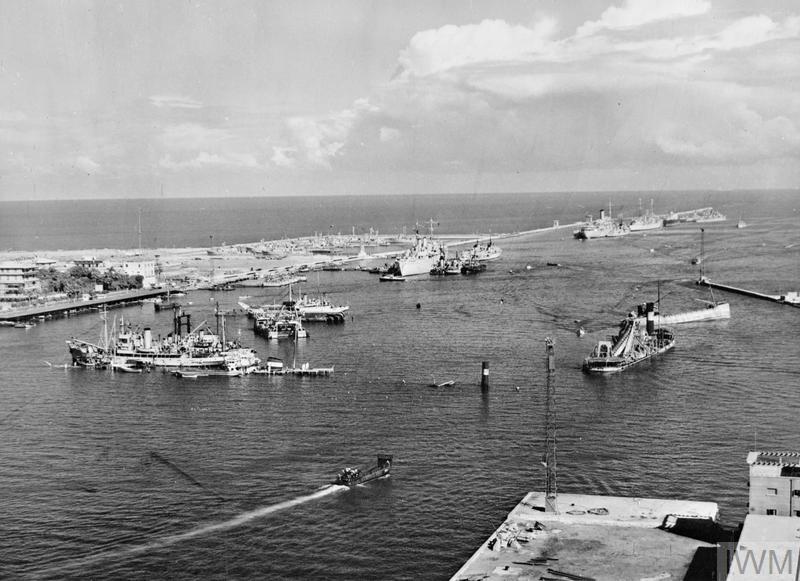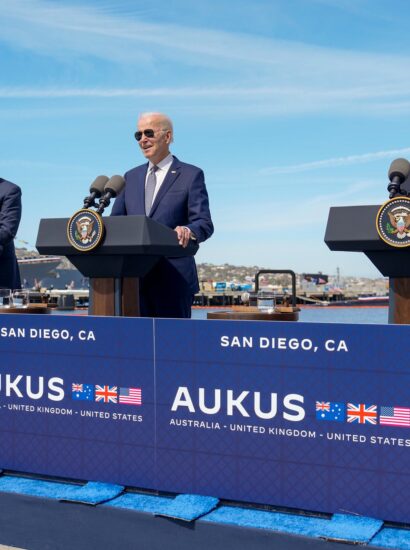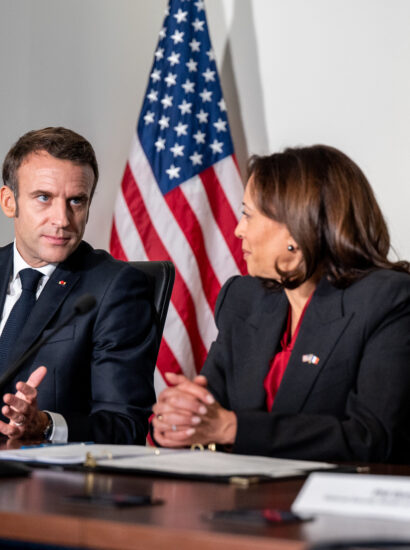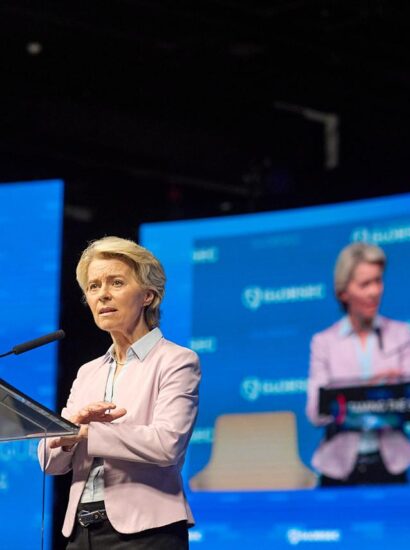“My concern is that Western countries are overestimating how significant they are,” says macroeconomist Philip Pilkington about economic multipolarity. As a macroeconomist and financial analyst he has written for a variety of publications including The Telegraph, The Spectator, UnHerd, American Affairs, and First Things. He is also co-host of the popular “Multipolarity” podcast and author of the book The Reformation in Economics. He is a regular writer for the New York Post. He is also a visiting scholar at the Hungarian Institute of International Affairs, where we met on the occasion of the imminent publication of his recent study.
Experts may agree that the world is currently witnessing a new Cold War, dominated by the rivalry between the “West” and the “East”, namely US and Chinese interests. How true is this in the global economy?
If we’re rational, we can’t have a new Cold War because the Cold War was fought between two separate economic blocs. No or just very little commerce existed between the two poles. There was a real divide there. That’s not the case in the world today. The world, the economy is completely integrated. For example, we’ve even seen the impact when a country – that many people told was less important – like Russia was cut off from the energy markets. I mean, we can talk about the sanctions which haven’t worked. Everyone knows now that the Russians are still buying Mercedes, they’re just buying them through third party countries. Thus, the world is interconnected in a way that it wasn’t the Cold War.
So, I don’t think it’s actually possible to create a new cold war system. That doesn’t mean that misguided politicians can’t try it. My concern is that Western countries are overestimating how significant they are.
I’m not saying the West’s economies aren’t important, just they’re not the only players anymore. When they try and use their financial and economic power thinking that it’s like it was in 1992. After the Russian-Ukrainian war fell we have very-very unpredictable bad consequences and I think sanctions hurts the West a lot more than the non-west. I think the non-West is in a better position to deal with this because China for example is the big manufacturing hub.

G.Tech Technology Factory Zhuhai China in 2015 (Photo: dcmaster / Flickr.com)
Multipolarity is Long Gone
So how would you describe the world today? It’s a multipolar world in a political way and in an economic way? Should we be afraid of the rise of China?
As I said, these changes have been taking place for a long time. I think people in the West always knew that China was going to rise to be powerful. For example, during the Obama administration or even at the end of the George W. Bush administration, I think people were accepting that China was going to rise and that it was going to become not a rival but a competitor at least. But it’s not the only change. The things have got so accelerated since the war began in Europe. At the same time, we talk about multipolarity because the unipolar world is dead. It has been dead for two years.
It always takes a long time, but I think it became very obvious that the unipolar moment is dead.
If you look at the collapse of Britain as the global empire, it formally dies in, probably 1945, but really it had been dying since it started the first World War.
Charles Kindleberger, an American economic historian, argues that stability in the global economy and politics requires a hegemonic state that is willing to bear the military and financial costs of maintaining order, provide key currencies, and act as a lender of last resort. Without such, chaos and destructive rivalries between regional powers will ensue. You also argue in your paper that the US has functioned as a kind of economic hegemon since the Second World War. If we accept that this hegemony is currently disappearing or has already disappeared, what can we expect in the near future in terms of stability?
I must argue with that. The 19th century was exactly the multi-polar world. I would say it was more stable and more peaceful compared with the 20th century. The two major wars in the 19th century were the Napoleonic Wars and the Civil War in the United States. The first was effectively a revolutionary spread from France, which was unusual, the latter sought to unify two different countries. And yes, in the Civil War you could have an industrial scale of killing. But overall, it was a fairly peaceful period, and our experience with the previous multi-polar world is that it leads to stability. Let’s look at what’s going on in the Middle East right now: is terrible and it’s very concerning. If it spirals out of control it will have huge ramifications. But what we’ve seen so far at least is that the everyone’s been moving very incrementally.
If you’ve noticed that, at the beginning there was a possibility that everything would go crazy. The Hezbollah would attack from the north. But what we’ve actually seen, we haven’t seen a de-escalation. Now, we can see in a world like this, everyone is clearly trying to get an edge. But there seems to be a certain element of control over it. Other example for this control, despite the war raging in Ukraine, is that it has been contained to Ukraine. Because nobody wants to violate certain red lines. Having access to nuclear technology just draws their lines. It doesn’t mean there can’t be any mistakes. So, I totally disagree with Kindleberger. I could describe this is a a self-equilibrating system.
The BRICS Countries are on the Rise
In your paper you foresee the advance of the recently enlarged BRICS. The bloc’s demographic dominance is indeed significant with 1/3 of the world’s population. But, with the exception of China, the members’ share of global GDP has stagnated or not changed significantly over the last 20 years, e.g. in 2021, the two vocal proponents of the multipolar world order, Brazil and Russia, will each have a share of global GDP below 2 percent. Brazil’s GDP of 200 million was barely higher than Australia’s of 25 million and lagged behind Canada’s of 38 million inhabitants. Not to mention the rivalry between the BRICS members. So how they going to compete with G7 as a group, or individually?
If the BRICS countries become as wealthy as the Western countries, they will be more important. In economic terms, that’s just a fact. Probably, we will see that within these 100 years. We’re already seeing the beginnings of this reality with China and India. Another issue there is that the West has already kind of mismanaged this transition. It’s called deindustrialization. Especially mismanaged by Britain and the US, they’ve been running enormous trade deficits, which just been completely financed with the power of the dollar and the dollar-based system. It’s one of the core reasons that Trump and Brexit happened.
Everyone has now recognized that this deindustrialization has been catastrophic.
Unless managed very carefully, living standards could in theory fall in those countries that are running large trade deficits. Remember they are only propping up those trade deficits through the acceptance of their financial tokens in the other country. The moment that beneficary country don’t want to accept them, living standards will necessarily fall. There are ways to manage that, but the current hysteria, or panic, or call it what you will, is not the way to the solution. There are already quite volatile countries such as the U.S., when its comes to trade.
What are the possibilities to reverse these trends?
Using good policies it could end up being quite positive.
The Western powers could rebalance their economies with getting a small part of manufacturing back, maybe gradually bring down the value of the currency’s long-term, run sensible industrial policies.
But right now, Washington is tilting toward a trade war with a country – China – that holds a vast amounts of their bonds. That seems completely crazy to me.
The End of the Dollar-Based Economy?
In one of your earlier articles, you wrote that the dollar-based economy and trade could soon end and yuanisation could occur. However, despite its best efforts, neither China nor any other country can offer a viable alternative to the US dollar. What will be the “super currency” that everyone would accept? How is the global economy going to work the dollar dominancy was over?
Well, my provocative answer is de-dollarization has already happened. If you look at the reserve holdings, this is all that the economists point at. Look, the dollar reserve holding’s still 60 percent, it’s really high. But that doesn’t really mean much because prior to the US dollar being the hegemonic currency, it was the British Pound sterling. It remained the largest reserve holding, until the early 1960s, and Britain’s economy was still one of the largest in that year. Despite all this, already in 1956, during the Suez Crisis, the Americans effectively told the British, if you continue your war with Egypt, we will crash your economy.

General view of the Suez Canal at Port Said showing a number of the blockships sunk by the Egyptians to prevent used of the canal and Royal Navy salvage vessels preparing to clear these obstructions (Photo: IWM / Wikimedia Commons)
In that time America already had full control over the world’s financial system. That was the reality. However, the de-dollarization is already happened the matter of fact is I don’t think the dollar is going to disappear.
America’s an enormous economy. It’s completely integrated into global trade networks. Unless something crazy happens.
I don’t believe these ideas that the Chinese want the yuan to be a reserve currency. I think they’ve seen the downsides of having a reserve currency. Instead, they do want to expand trade in yuan, especially the with Saudi Arabia, through the energy deals.
There is a so-called petroyuan between China and Brazil, which already exists.
Yes, it does exist, as the petrodollar does as well. The point is, the petroeuro, as far as I know, never existed in that case. So, in a sense the global oil market has been de-dollarized, in the sense that it’s not the exclusive currency. So that’s the way to think about de-dollarisation. We’re not going to wake up one day and say, OK no dollar anymore in the market, or in its process. The dollar hegemony is over, unipolarity in currency arrangements has been largely dead already for years.
The Role of the European Union and Hungary in the Changing World Order
The EU has long been interested in reducing its economic (and military) dependence on the US in order to become a dominant player in its own right. Do you think this is possible in the near future? What steps would EU leaders need to take to achieve this strategic autonomy? Is there a possibility for the US to devastate the European economy if we take these steps?
No, I don’t think so. Europe is a fairly safe self-contained economy. Until recent issues with energy, around large trade surpluses, since 2008 effectively. Though, there were problems with that model. It’s a low growth model. Nonetheless they had been running a trade surplus policy by two to three percent current account surplus every year on average.
The EU was never financially beholden to America because it had its own currency. While Europe didn’t rely on America to hold its bonds it is more reliant on China than on the US, because it is running a large trade deficit with Beijing.
I think what is really problematic in Europe’s economy, that’s the overregulated capital markets. I think that Europe should consider deregulating, not in a silly sense of letting everything happen, but if Europe wants to develop their own capital markets, they’re going to have to look at the upsides of some of the American and British market relaxing approaches.
What do you think about EU–China and the EU–Russia partnerships?
I think Europe is already showing that it has independent foreign policy vis-á-vis China. Recently when Olaf Scholtz traveled to Beijing, I think it was made quite clear. The leaders of the EU didn’t say it out loud, but they made it quite clear they want independent partnership with China.
The real question on the table for Europe is its energy policy which is inherently tied up with its Russia policy.
That is the issue that Europe has yet to decide on. Now some Europeans will say, we have made a decision. It doesn’t look to me like it’s a very sustainable decision.
Are you meaning to say that Europe made a mistake with its current Russian policy?
The current energy situation is ultimately a result of the Russia-sanctions. Let’s be realistic about what that means. First of all, the sanctions haven’t worked, they haven’t collapsed the Russian economy. I think there are very few defenders left of the sanctions.
Some even say that the sanctions are benefiting Russia, it is forcing the Russian state to engage in capital investment that hadn’t done it prior.
I don’t know if that’s true or not, the statistics aren’t good enough to show it, but we do hear anecdotal evidence of labor shortages and so on. While those sanctions haven’t worked, they’ve been disastrous for Europe. Europe has had the piped gas that it relied on for its competitiveness. Now, it is cut off from it and then it’s just having gas converted into LNG. The Russian LNG is being sold at plus 40 percent. Even markup. The Russians can either sell it as LNG or they can find an alternative market, they don’t care. So, at some point Europe has to make a decision about is it willing to destroy its economic competitiveness for who knows how long? Or is it going to look at what the sanctions have actually done? That’s the biggest question for Europe, the beyond anything else.
What do you think about the Hungarian government being committed to its Eastern opening, the fact that Prime Minister Viktor Orban, going against Western criticism, has deepened the relations with autocratic regimes like Moscow and Beijing. Can this, together with the unorthodox economy policy, be successful for a small economy like Hungary’s?
Well, I think that Hungary is doing exactly what they should be doing. They realize that the world is changing.
As the prime minister said in his speech at the event of the 50th anniversary of the HIIA, if you completely rely on one power, you may have gifts one minute and you’ll have those gifts separated next minute.
That’s not a judgement on any particular power, that’s a fact. So the right thing to do for a small economy is try and be friends with as many as possible and do as much trade business as possible. If you’re willing to do what Orban called a “radical step”, I think then you have a huge advantage. Because all the other countries are saying: “Oh, well that’s radical.” Now it’s massively ironic because it’s completely non-radical. It’s the most obvious thing for a small country to do in the world. It is still a bet from Prime Minister Orban, but I think it’s a good bet.







